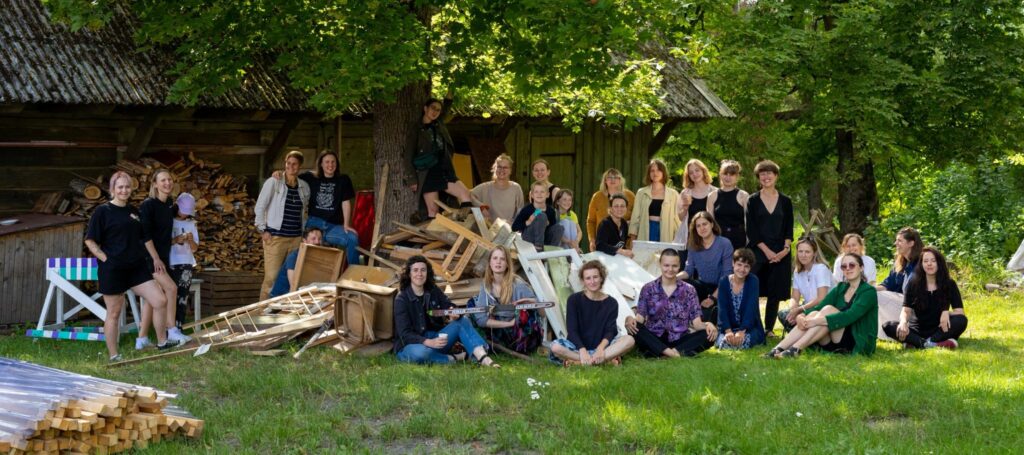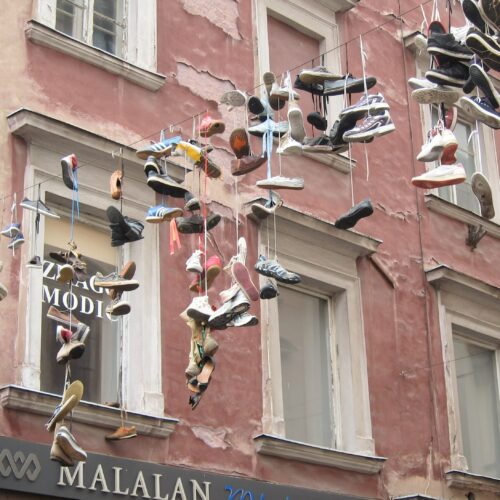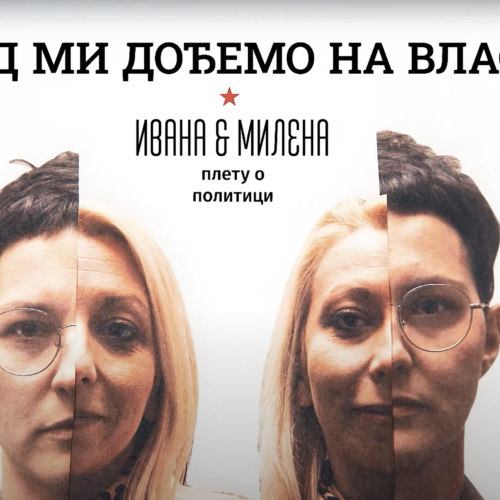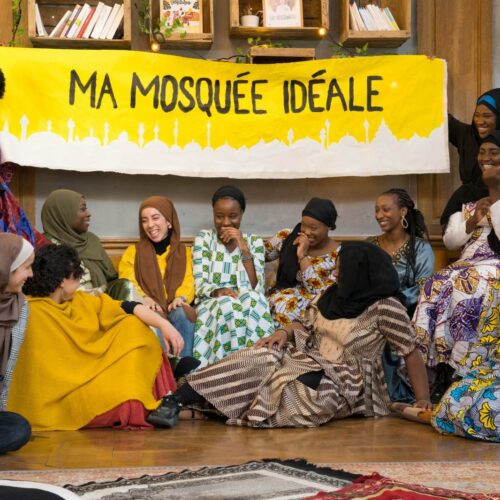In 2019 with the support of an Echoing Green fellowship, a small crew of feminist friends were able to fully commit to New Visions as their core work to develop TAIGA – a leadership program for women working in arts and culture, rooted in a feminist, cross-generational, social justice approach, aimed at creating an international network of social innovators to fulfil the vision of a world where differences are embraced and cherished.
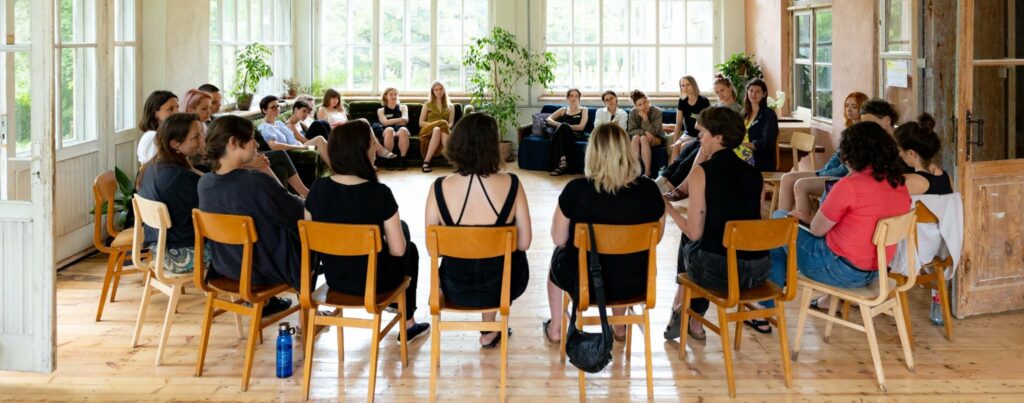
Becoming TAIGA is a series of community-building trainings in countries New Visions work with (Latvia, Poland, Ukraine, Lithuania) that culminates in a creative gathering, where participants of the local nodes of the TAIGA come together in a space where they share, create, co-produce and conspire radically transformative actions together, in a spirit of sisterhood and solidarity.
The project is rooted in the acknowledgment that culture and art have been central in nearly every social movement in history and have a huge impact on shaping social awareness and driving change. Therefore it is crucial that the leaders in this sector are sensitive and aware of global and local struggles and interdependencies, can imagine more equitable and inclusive ways of being and creating relationships, and can lead themselves and their communities with vision, courage, and care.
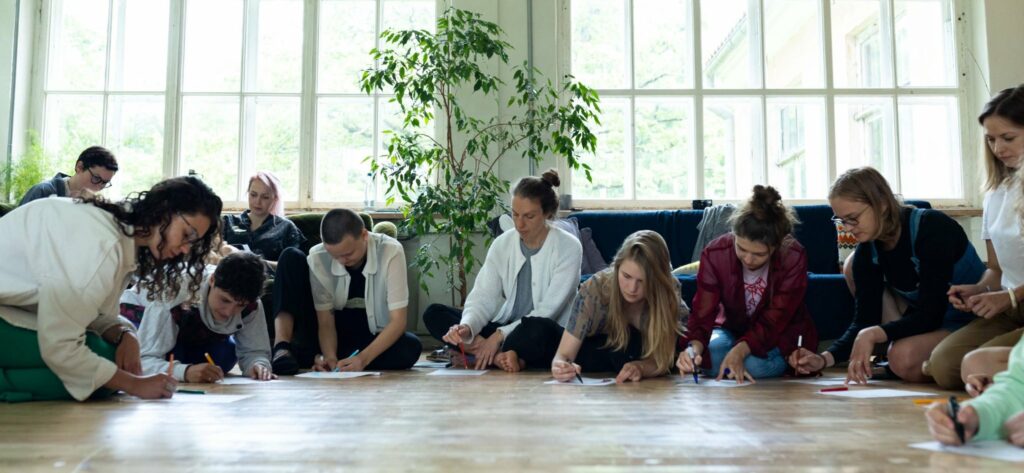
TAIGA is designed for women* who are active stakeholders in the cultural and creative sectors of their local contexts and focused on social inclusion through culture and arts.
TAIGA aims to:
- to empower and strengthen the participation and visibility of women* working in arts and culture;
- to explore and practice different elements of transformative cultural leadership;
- to re-imagine and strengthen the role of arts and cultural leaders in social change and ensure inclusive and participatory practices in the cultural sector;
- to acquire practical skills and tools for self and community care, cultural and arts management, and doing cultural/artistic work that acknowledges and addresses the social and ecological challenges of our times, which are rooted in inequity and injustice on multiple levels;
- contribute to cross-institutional partnerships to build more resilient cultural organisations that drive positive social change towards a more just, equitable, and inclusive cultural sector
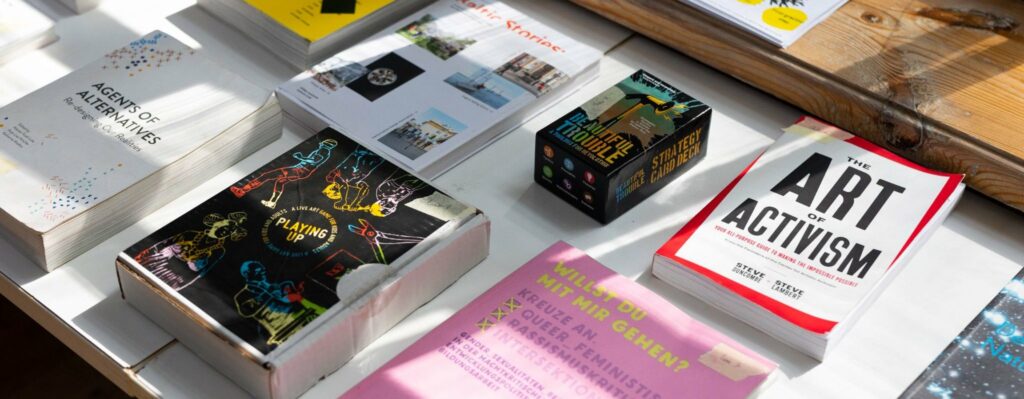
The full program connects theory and practice, workshops and input from guest speakers as well as spaces for learning from one another, consist of both on-site seminars and e-learning modules, a holistic learning approach with a focus on how participants can move and lead in their own specific contexts, while feeling each other’s support.
New Visions focuses on transformational feminist leadership that is informed by learning from racial, gender, class, queer, disability, and other struggles for recognition, access, redistribution and political representation. It also includes active learning from indigenous, anti-colonial and abolitionist movements globally. They look to their our own experiences to best serve the communities they are a part of, having in mind everyone’s complex political identities. The New Visions crew are committed to practising what they preach, what sometimes comes at the price of who they can or cannot work with or who they want or do not want to work with, because of potential political differences, or if the funding comes from activities they do not align with.
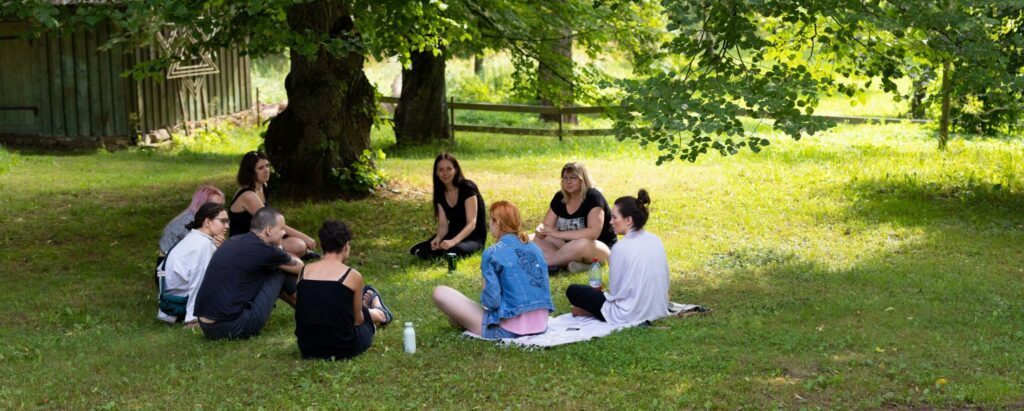
Guerrilla Grant
After 2 smaller reflex grants, covering bursaries to increase working class participation in the TAIGA programme, New Visions will now be able to use a meatier grant to organise the final gathering of the local TAIGAs.
They are actively building TAIGA – a network of activists and cultural practitioners, women, trans and non-binary folks, focusing on transformational feminist leadership based on bold love and care, building resistance and rooting it in queer-feminist and decolonial approaches. They have already run two online cohorts of the program until now and next year they will run an offline training and international gathering, in Poland, inviting folks from Poland, Latvia, Ukraine and hopefully Lithuania.
TAIGA is a holistic education and empowerment network created by womxn and queer folk for womxn and queer folk with the mission to increase representation of womxn in the cultural sector in Eastern Europe and normalise care- and justice-centred leadership practices as a way of transforming cultures. TAIGA strengthens leadership competences, provides tools and strategies for driving positive social change, connects women across generations, and is rooted in feminist leadership approach seeing women as agents of change.
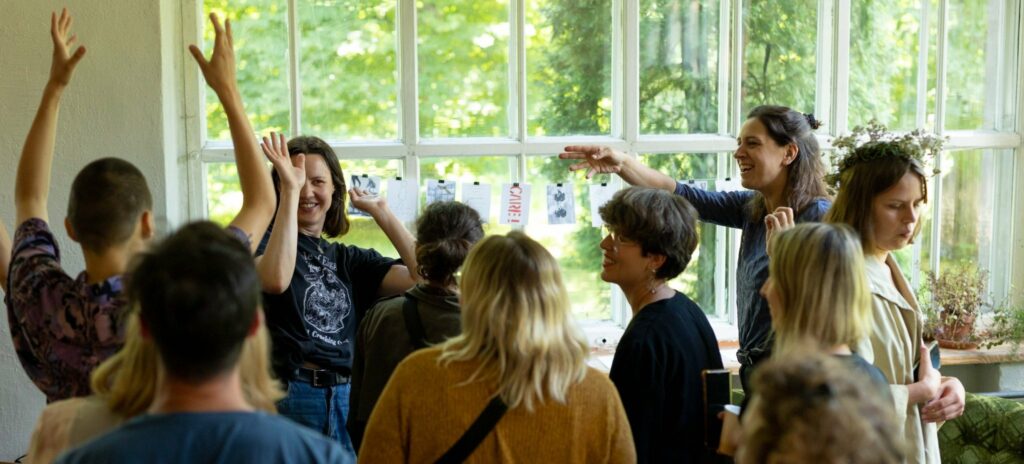
In this edition of TAIGA, they will focus on creating a space of learning, exchange and creation between artists, activists and leaders of various generations (womxn & queer) coming from five countries, and on sustainability, resilience and empowerment through learning of skills and knowledges that are being lost and forgotten. This intergenerational and transnational project will reconnect participants and audiences with the ancestral and local knowledge of community care practices in Europe.
“Elders know how to make you small enough to become intimate with your vastness. That’s what elders do, they press you into the ground so you can grow” – Bayo Akomolafe.
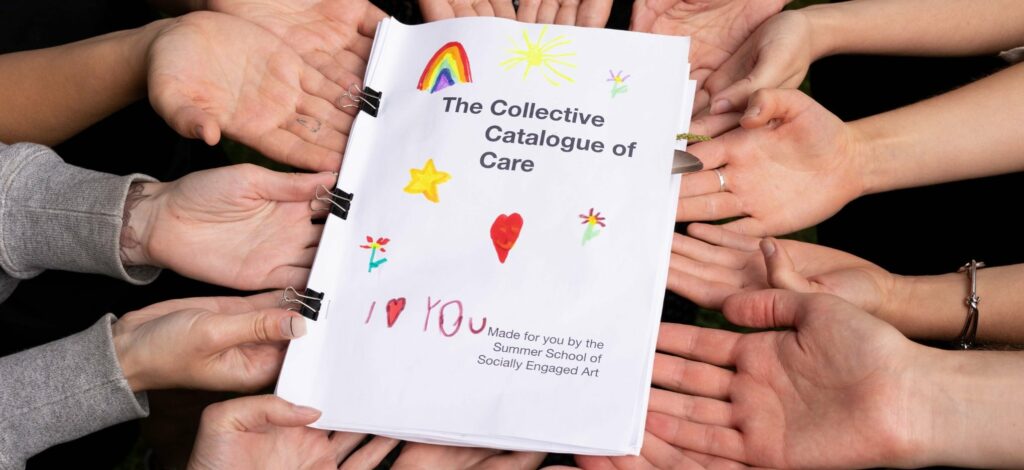
There are two focal points to the programme:
- researching, sharing and centering the knowledge and experience of elders – knowledge & skills that were crucial to pre-capitalist societies and existence, and focused on relation to the local environment and ecologies, to community nourishment, health, care, shelter, as well as art and culture. Instead of chasing the contemporary art world’s trends and ideas, they want to focus on arts and crafts made by and for communities of kin. They want to break with the image of certain skills and knowledges being ancient and lost – and see how recovering and cultivating marginalised practices can break the notion of progressive, linear time and put us all back into a cyclical mode, in tune with the nature around us, and accompany the process of unlearning and refusing of capitalist, patriarchal realities we’re forced to share. All that without having to constantly turn to foreign and far away cultures, so easily appropriated across the Western world as an escape from the damage they originated.
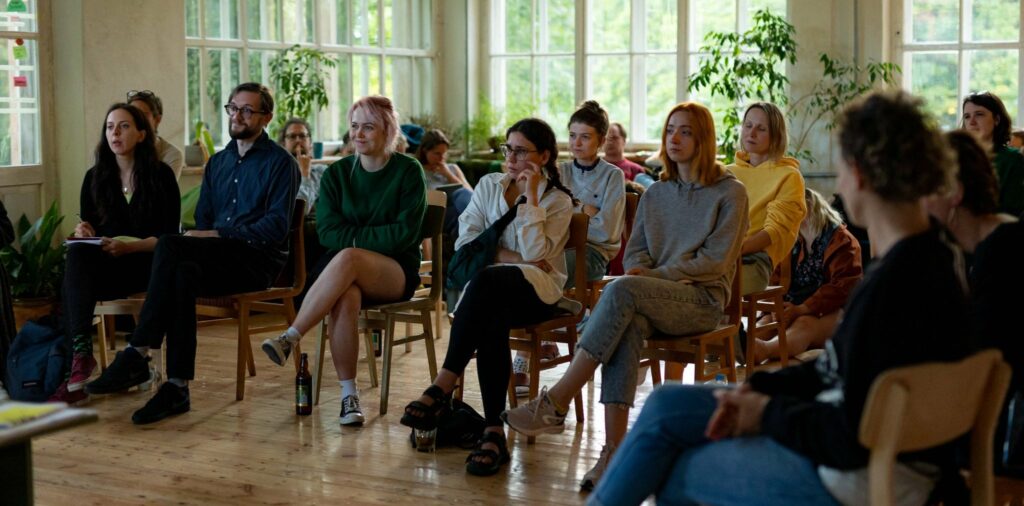
- using protocols for intersectional justice, feminist education and decolonial work already established throughout their work in Eastern Europe and Denmark, and weaving them into this educational program, including intellectual work, somatic experiences, spiritual realm and community building.
TAIGA takes into account the simultaneous marginalisation and privileged position of Eastern Europe, contextualising power relations in the realities of post-communism, while applying a decolonial and intersectional approach. Intersectional narratives are missing in the cultural and art sector in the region. Working with cultural practitioners from Latvia, Lithuania, Ukraine, Romania and Poland, there is a giant need to touch upon these uncomfortable topics of power and oppression.
